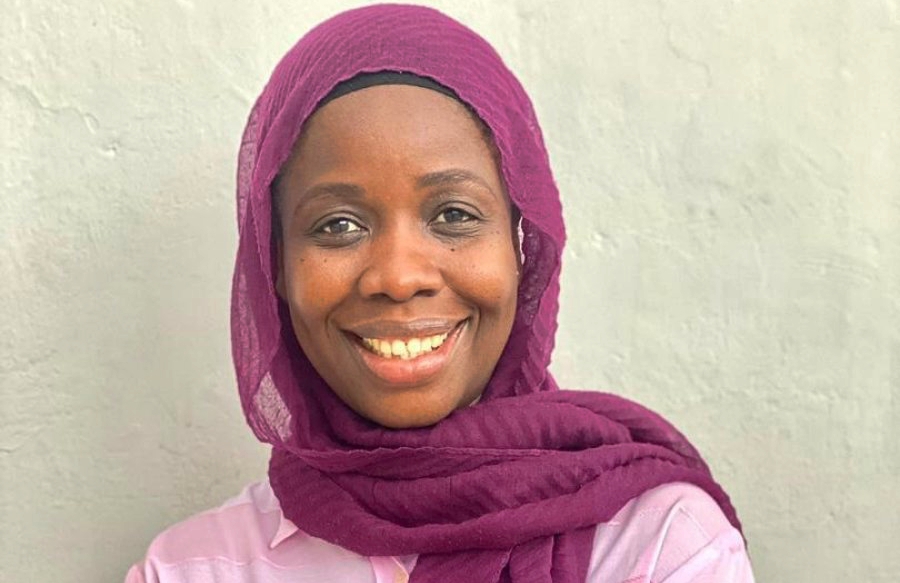Gambiaj.com – (BANJUL, The Gambia) – At first glance, it may seem a world apart – delving into the intricacies of infectious diseases and experimenting with flavors in the kitchen. But for Ya-Jankey Jagne, a rising star in vaccine research at the MRC Unit The Gambia at the London School of Hygiene & Tropical Medicine (MRCG-LSHTM), both are about creating something that nourishes and protects.
Today, she is at the forefront of some of Africa’s most critical vaccine research. But ask her what she might have been in another life, and her answer comes with a warm smile: a chef.
Her journey into science began just after completing her undergraduate degree, when she joined the MRCG as a trainee scientific officer. It was there, working on a malaria vaccine clinical trial involving adults in The Gambia and Kenya, that her passion for vaccines was born.
“I learned a lot about how vaccines work and how immune responses can protect against infection and disease,” she recalls. “In Africa, where malaria and other infectious diseases still claim many lives, especially among infants, I quickly saw how crucial this work is.”
Fueling Africa’s Vaccine Future
Now a post-doctoral researcher, Ya-Jankey focuses on a disease many people rarely hear about: Group A Streptococcus (GAS).
This bacterium causes common illnesses such as sore throat and skin infections—but in some cases, it can lead to life-threatening diseases like rheumatic heart disease, which disproportionately affects children in low-resource settings.
“The World Health Organization has emphasized the urgent need for a vaccine to reduce this burden,” she explains. “My work aims to understand the immune responses in Gambian school children following infection or carriage of GAS.”
Her ultimate goal is to use genomic tools to map how immune systems across Africa respond to infections and vaccines. This could pave the way for globally effective vaccines that take into account the vast genetic diversity of both human populations and the pathogens circulating in Africa.
“My hope is that my research will help ensure vaccines are developed that work for everyone, not just for certain populations,” she says.
Mentoring Future Scientists and Collaborations Across Continents
Beyond her scientific achievements, Ya-Jankey is deeply committed to mentoring young African researchers, particularly women in science. She is active in mentoring programs both within the MRCG and through organizations like Women in STEM Gambia.
“I hope to inspire the next generation of African scientists,” she says. “It’s important to show that we can lead high-quality research right here at home.”
One of her favorite aspects of her work is the vibrant collaborative environment within the MRCG Vaccine Theme and its ties to the LSHTM Vaccine Centre. Researchers in the theme work on everything from tuberculosis to maternal and newborn health, and monthly meetings spark new ideas and partnerships.
“There’s such a diversity of expertise here,” she says. “We also collaborate internationally, which allows us to learn new techniques and bring them back to strengthen our research locally.”
Real-World Impact and Beyond the Lab
Ya-Jankey’s work is not confined to academic journals. Her studies feed directly into public health decisions.
For instance, her recent study—published in Nature Communications Medicine—shed new light on Covid-19 in The Gambia.
Despite relatively low reported case numbers, the research revealed that many Gambians had developed strong immune responses even before the arrival of the more dangerous Delta variant. Children, the study found, were generally more protected than adults.
“This research has real-life implications,” she says, pointing to its potential influence on vaccination strategies in the region.
When she’s not immersed in the world of immunology and vaccines, Ya-Jankey finds comfort in the kitchen. “I love cooking and spending time with my family,” she says. Her culinary curiosity is more than a hobby—it’s her alternate life path.
“If I wasn’t a scientist,” she laughs, “I would have been a chef.”
In both worlds, her instinct is the same: to blend ingredients—whether culinary or scientific—in ways that nourish and protect her community.










